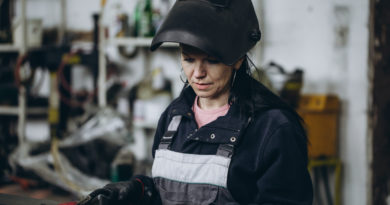Why Couples Can Be Resistant to Counselling
Let’s face it guys: Relationships are hard work. A successful relationship requires both parties to be fully present and willing to put in the necessary effort.
Many couples reach a stage in their relationship where one or more problems have become evident and the immediate conclusion is that ending the relationship is the best or easiest way to deal with those problems.
This is clear when looking into Canada’s marriage statistics, which show that not only is the divorce rate substantially higher than it was in the past, but that the number of people actually getting married is decreasing each year as well.
So why is it that couples are so quick to give up on each other, rather than working through their problems?
One way couples can address and work on their problems is through counselling, which typically produces positive results in terms of helping the couple come to the healthiest and happiest conclusion. However, most couples don’t even consider this option. There are many reasons why couples can be resistant to counseling, and while it is not the answer for every couple out there, it should not be dismissed so quickly.
Counselling Misconceptions
There are many misconceptions floating around regarding couples therapy, and therapy in general, which is a major cause for most couples’ hesitations. People have preconceived notions, based on hear-say, media portrayal, etc., which stop them from considering counseling as a legitimate, and even positive, resource.
Some common misconceptions regarding therapy are:
- The therapist will take sides
- The therapist doesn’t know me, so they can’t help me
- Therapy takes too long
- Therapy is too expensive
- Therapy is for crazy or weak people
As you can see, these are all negative stigmas, none of which are accurate. Before dismissing couples counseling as a potential resource for you and your partner, do your own research and create your own opinions.
Why Choose Counselling
Couples counselling is not a one-note solution. Counselling sessions can cover a variety of issues, which will vary from couple to couple. Whether it is a lack of communication, financial issues, intimacy problems, etc., your counselor is prepared to take it on with you. No matter what root a relationships problems are stemming from, within reason, they can be addressed in a counseling session.
Regardless of the issue at hand, any therapist will elaborate that there are three guidelines that must understand before one can take part in a productive and change provoking counseling session.
First, both parties involved must be motivated by love and a desire to do better and make things work.
Second, the primary task of the counsellor is to help each party identify their contributing role in the relationships problems.
Lastly, a counsellor will ensure that both parties realize their primary task is to reflect on themselves and their own actions, rather than shifting blame to their partner.
Session Concluded
If you and your partner are in a tough spot, are not happy, or have pressing issues that you are unable to work through on your own, you should seriously consider counseling as a potential solution. Whether it brings you together, or helps you come to terms with the opposite, it can only aid in the process you and your partner are already facing.




